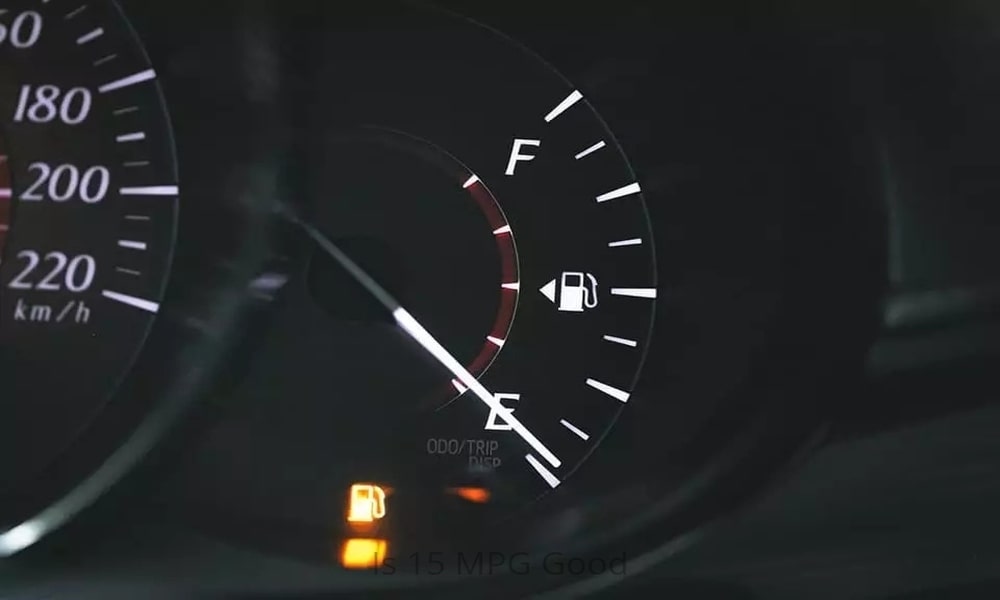Understanding MPG
Definition MPG
When considering fuel effectiveness, a general query arises: is 15 MPG good? This question doesn’t have a one-size-fits-all answer, as it relies on a variety of factors like vehicle type, driving habits, and personal needs. MPG or Miles per Gallon is a measurement of how far the vehicle can be driven on single gallons of gas. This measure is used to determine a car’s fuel efficiency. MPG increases are more economical and Eco-friendly. This metric is highly dependent on the vehicle type, driving habits and conditions of the roads. Simple yet effective, this metric will help you determine the distance your money and gas can take you.
Why is MPG Important?
Fuel efficiency has a major impact on both individual finances and conservation efforts. On the other hand, is 15 MPG good? It depends on your driving needs. MPG increases mean that consumers will make fewer trips at the gas pump and spend less overall on fuel. A larger scale, vehicles that are efficient contribute to lower CO2 emissions and reduce reliance of fossil fuels. MPG becomes more and more essential as fuel costs rise and concerns about the environment grow.
What is a good and bad MPG?
A typical MPG rating
How to measure “good or bad” MPG is subjective.
- High Fuel Efficiency (>30 MPG): Electric vehicles, compact cars and hybrids often offer fuel savings that are exceptional.
- High Efficiency Vehicles (20-30 MPG): These vehicles include most sedans in the standard range and some smaller SUVs.
- Low fuel efficiency (20 MPG): Larger SUVs trucks and performance-oriented cars are often less fuel-efficient.
Factors that influence MPG
Many factors have an impact on the MPG.
- Vehicle size and weight: The heavier the vehicle, the more fuel it takes to move.
- Engine Power Type: High Performance engines usually prioritise power.
- Drive Style: Aggressive driving such as rapid braking or acceleration can lower MPG.
- The terrain and conditions: High-altitude areas, stop-and go traffic, and other factors can affect fuel efficiency.
- Maintenance: Inefficiently maintained cars, such as those with poorly inflated tires and dirty air filters will use more gas.
Fuel efficiency standards
Government fuel standards
Fuel efficiency benchmarks are set by many countries to help reduce their national fuel consumption. As an example, in the U.S. the standards for Corporate Average fuel Economy (CAFE), are used to guarantee that automobile manufacturers produce vehicles which have a higher MPG. These regulations incentivize hybrid and electronic vehicles. They push the industry forward.
The industry trends of MPG
The last decade has seen a major push towards developing vehicles that achieve better MPG without sacrificing the performance. Technology like lightweight materials, turbocharged vehicles, and systems for regenerative stopping are all becoming increasingly popular. Automakers also explore alternative fuels for vehicles and offer electric power-trains that are more efficient.
Vehicle fuel efficiency
A comparison between vehicle types
- Coupes: These compact or midsize coupes and sedans offer better fuel economy. They can achieve between 25-40 mpg. Because of their lighter design, and because smaller engines are used in them, they’re highly efficient.
- The SUV: Although larger and heavier sedans, technological advances allow for some SUVs that can achieve up to 20-30 mpg, although many are still around 15-20 mpg.
- Vehicles: Full Size Trucks prioritise power and towing over fuel efficiency. As a result, they have an average MPG rate of 10-20.
Hybrids, electric vehicles
Toyota Prius and other hybrid vehicles combine gasoline engines with electric motors to get over 50 MPG. Electric vehicles like the Tesla Model 3 are fully powered by electricity. Their efficiency is measured in mi/kWh (miles per kilowatt), which can easily be converted to MPG.
Improving fuel efficiency
Good driving habits
You can dramatically reduce fuel consumption by changing your driving habits. Avoid aggressive behaviors such as rapid acceleration or speeding up, because they use fuel fast. On highways you can save fuel by reducing idle time, using the cruise control or using your car’s automatic transmission. For better results, imagine your gas peddle as a lightweight sponge.
Vehicle maintenance
Maintenance is vital to maximize your MPG. Keep an eye on the following key areas.
- Tires: A properly inflated tire reduces rolling resistance.
- The Engine: Clean filters and timely changes of oil ensure optimal performance.
- Fuel Systems: Keeping fuel injectors clean can enhance fuel automization, improving combustion efficiency.
Advanced fuel-saving technologies
Most modern vehicles come with features designed to increase efficiency.
- Start Stop Systems: Automatically turn the engine off while idling to reduce fuel waste.
- Air-Cutting Designs: The car will cut through the atmosphere with minimal resistance.
- Lightweight Materials: Reduce weight of vehicles without compromising on safety.
Real-world MPG examples
Comparison of city and highway MPG
When driving in the city and on highways, fuel consumption can differ significantly.
- Urban Driving: Frequent idling, frequent stops and a lack of acceleration can cause MPG to drop. This could even be as low at 10-15 MPG on larger vehicles.
- Highway Travel: At steady speeds, vehicles can reach their MPG rating. SUVs and trucks often achieve 15-20 MPG.
Case study of vehicles with 15 mpg
Some vehicles achieve an average of 15 MPG in the city, but not all.
- Large SUVs Models: such as the Ford Expedition and Chevrolet Tahoe, are designed with capacity and power in mind and offer 15 MPG in urban areas.
- Heavy duty trucks: Trucks such as the Ram 2500 place a high priority on towing and payload, but sacrifice fuel economy.
Conclusion
So, is 15 MPG good? It depends. Though 15 MPG can seem low compared with current standards, large SUVs designed for utility are usually ok to get. MPG can be improved by changing driving behaviors or improving vehicle maintenance. Staying in the know will allow you to make informed decisions based on your own needs.
FAQ’s
Comparing 15 MPG with other vehicles
Large SUVs and trucks get 15 MPG on average, but smaller sedans are considered to be low-mileage vehicles.
Why is a better MPG beneficial?
Increased MPG will result in fewer stops at the fuel station, lower prices, and reduced emission, which is good for both you and our planet.
Do driving habits impact my MPG rate?
Absolutely! You can get up to 20% MPG more by maintaining constant speeds, smoothing out acceleration and caring for your vehicle.
Can vehicles achieve a MPG lower than 15?
You can get MPG below 15 for both high-performance cars and old, less-efficient cars.
What is the environmental impact of 15 MPG?
This is a good compromise, even if it doesn’t work perfectly.




